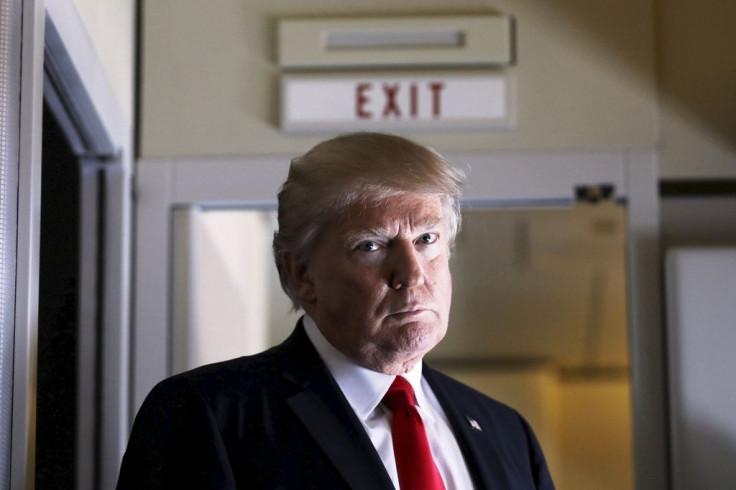Donald Trump Picks vs. President: Neil Gorsuch, 4 Other Nominees Who Disagreed With POTUS

Right from the beginning of his presidential journey, Donald Trump has triggered controversy over his comments on immigration, refugees, women, Muslims, and Mexicans. After swearing-in as the 45th president of the United States, Trump signed executive orders to deport any undocumented immigrant with a criminal record, halt immigration from seven countries with predominant Muslim population for 90 days, and ban Syrian refugees indefinitely and asylum seekers from elsewhere for 120 days. These orders have triggered anger among Americans and disagreement from certain section of Republicans.
Even Trump’s nominees have not shied away from disagreeing with the president. Following are the five times when his picks distanced themselves from the president’s views.
Neil Gorsuch on Trump’s comments on Judge James Robart:
Trump’s attack on Seattle U.S. District Judge James Robart halting the president’s immigration order, prompted a negative reaction by Appellate Judge Neil Gorsuch. Trump called Robart a “so-called judge” and said that he would be responsible if any terror attacks take place in the country.
Gorsuch, who was making the rounds in Washington this week, said Trump’s comments against Robart were “disheartening” and “demoralizing.” The comments came during a meeting with Sen. Richard Blumenthal, D-Connecticut.
Jim Mattis on Russia and Iran:
Before his confirmation as the U.S. Secretary of Defense, Jim Mattis disagreed with Trump’s views on Russia and Iran. The president is seeking to establish ties with Russia and had questioned the 2015 nuclear deal with Iran, which was also signed by five other nations — including Moscow.
On Jan. 12, Mattis said he supported a permanent U.S. military presence in the Baltics to counter growing Russia, which he said, was "raising grave concerns on several fronts." He also said that the U.S. should not renegotiate the nuclear deal with Iran.
Mike Pompeo on Russia hacking 2016 presidential election:
On Jan. 12, the then CIA director nominee Mike Pompeo said that he agreed with the intelligence officials’ report claming that Russian hackers leaked information about Democrat candidate Hilary Clinton and swayed presidential election in Trump’s favour.
"I will continue to pursue foreign intelligence with vigor no matter where the facts lead," Pompeo, who is now CIA director, said at the time.
John Kelly on U.S.-Mexico border wall and Muslim registry:
During his Senate confirmation hearing as homeland security secretary Jan. 10, John Kelly said he disagreed with Trump’s plans to build a wall along the U.S.-Mexico border and did not support the implementation of a Muslim registry.
“A physical barrier in and of itself will not do the job,” Kelly said about the wall, adding he was in favor of “layered defense” that used technology including drones.
About the Muslim registry, Kelly said he did not support targeting individuals for law enforcement activity based on their religion.
“I don’t think it’s ever appropriate to focus on something like religion as the only factor,” he said at the time.
Rex Tillerson on trade:
Prior to Rex Tillerson being picked up as a nominee for secretary of state, the former Exxon Mobil chief praised the Trans-Pacific Partnership, which Trump criticized during his presidential campaign.
In 2013, Tillerson said: "Even when a nation does not have a rich endowment of resources, we have learned that open markets and free trade can bring nations the energy supplies they need. But only governments can open the avenues of free trade."
"One of the most promising developments on this front is the ongoing effort for the Trans-Pacific Partnership," he continued, adding that the countries "that have been working to lower trade barriers and end protectionist policies under this partnership are a diverse mix of developed and developing economies. But all of them understand the value of open markets to growth and progress for every nation," Tillerson, who is now the secretary of state, said in 2013.
© Copyright IBTimes 2025. All rights reserved.






















